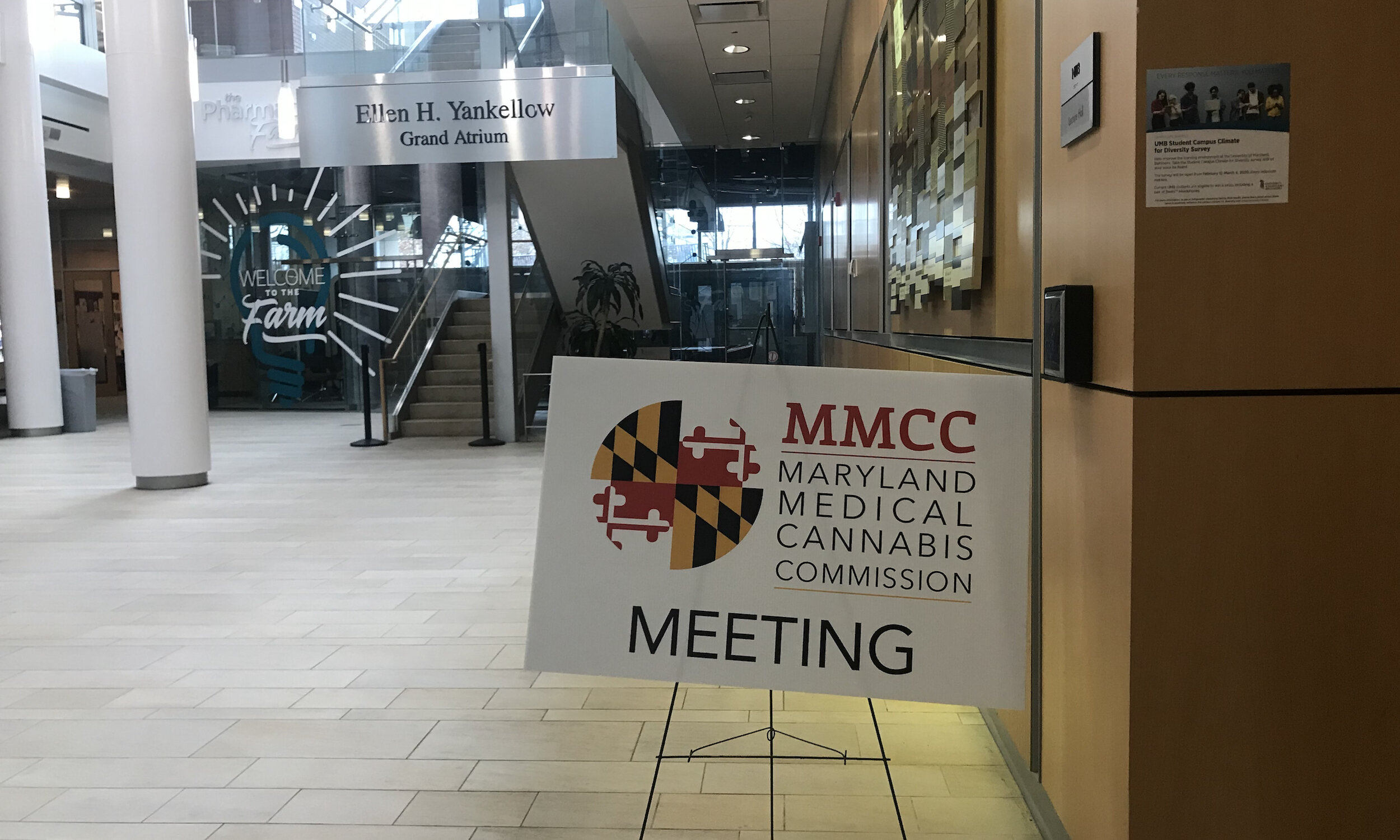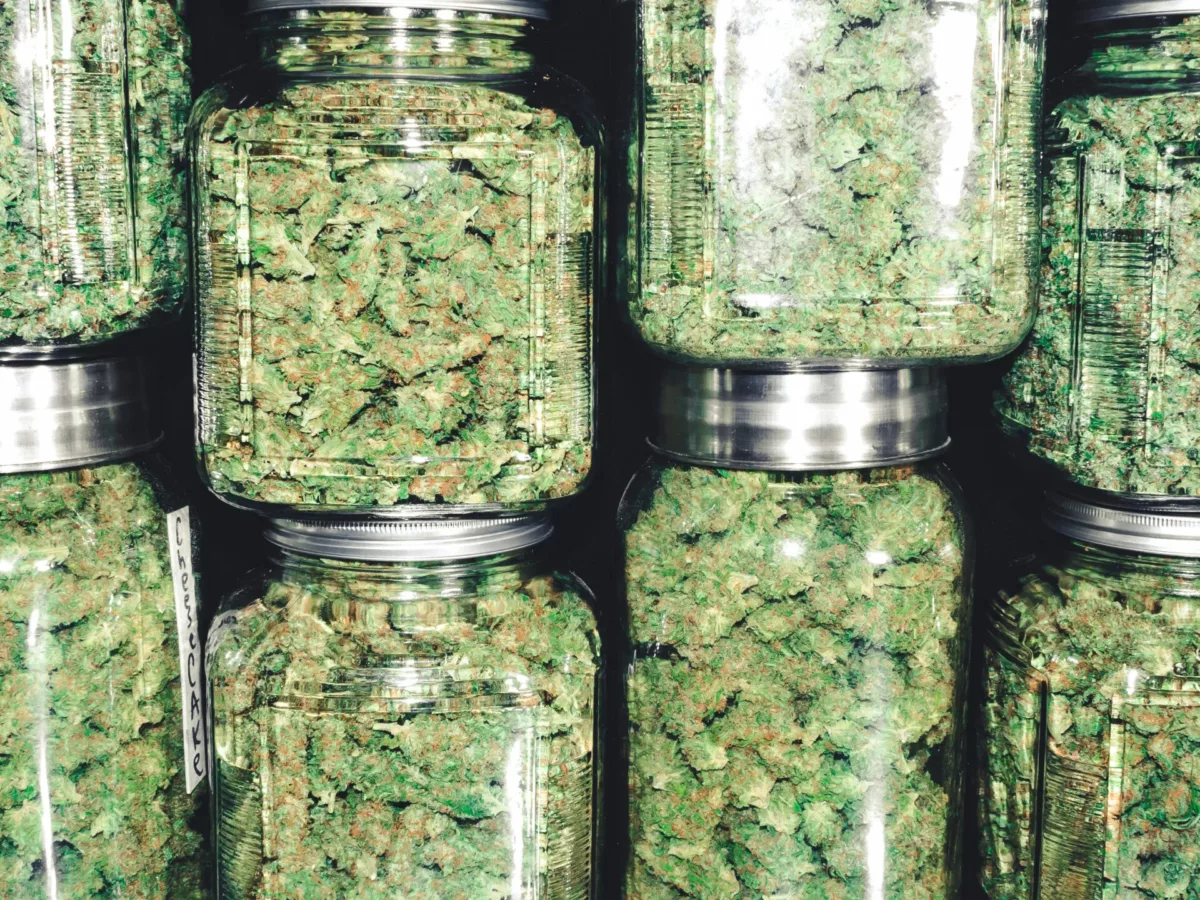This year’s first full meeting of the Natalie M. LaPrade Maryland Medical Cannabis Commission (MMCC) was all about housekeeping, really—updates, a few words on the legislative session, operational deadlines for a few dispensaries extended, and the approval of a handful of dispensaries.
MMCC Chairman Brian B. Lopez compared the commission’s recent efforts to “drinking from a firehose,” and so last week’s meeting, held at the University Of Maryland School of Pharmacy in Baltimore, was a way of finally moving forward after a couple years of seemingly, constantly catching up.
Even the location itself suggested progress, the commission suggested: The University of Maryland School of Pharmacy has the first Master’s in Medical Cannabis Science and Therapeutics program in the country, and holding the meeting here, explained MMCC executive director William Tilburg, represented, “the great partnership that has developed the last few years between the school of pharmacy masters program and the commission.”
There was, however, no time spent on the Cheryl Glenn bribery scandal which rocked the medicinal cannabis community, teases more chaos to come, and is what many within the medicinal cannabis community are most likely murmuring about.
Tilburg began the meeting’s executive director’s report by discussing the 2020 legislative session which has, he said, a total of 28 bills related to cannabis —so many that he admitted he does not have all of them memorized—which the MMCC would provide information to the General Assembly on as much as possible.
Seven, he said, were, “particularly important.” Those were House Bill 378, which would broaden definition of “certifying provider”; House Bill 870, which would repeal provisions establishing the compassionate use fund; House Bills 331 and 617, both of which relate to cannabis being administered in public schools; and House Bills, 1317, 1369, and 1449, all of which, Tilburg said, “would either remove caps for grower and processor licenses in the state or expand the number or expand allowing the number of dispensaries that can grow and process.”
The meeting then moved onto addressing the independent investigation regarding who evaluates applications and the independent investigation into who controls these approvals—an ongoing controversy in Maryland medicinal cannabis tied closely to racial equity. In 2019, the MMCC received over 200 applications for four grower licenses and 10 processor licenses with over 90 percent of those categorized as Disadvantaged Equity Applicants (basically, a business whose ownership was at least 51% held by a “qualifying minority group”).
“Many of you here are aware that the commission in September delayed the award of approvals for four additional grower licenses and 10 additional processor licenses,” Tilburg said. “That was due to concerns that had been relayed to the commission about potential undue influence or partiality in the evaluation process.”
Earlier in February, the MMCC awarded contracts tied to evaluating if those applying for licenses were who they said they were—this is due to accusations that certain applicants misrepresented themselves as majority, minority-owned—and to investigating “partiality and undue influence.” The ownership evaluation contract was awarded to Verity LLC and will be led by Raymond J. Peroutka. The partiality investigation contract was awarded to to Zuckerman Spaeder with an investigation led by Greg Bernstein, the former Baltimore State’s Attorney and U.S. Attorney.
Former Delegate Cheryl Glenn’s December 2019 indictment went unmentioned even though Glenn was leading the fight to look into who was getting approved, who was not, and why, before she was charged. Last month, Tilburg briefly addressed the Glenn scandal at the House Health and Government Operations Committee, noting that despite everything “that’s going on momentarily in Baltimore,” Glenn’s bribery and fraud did not effect the regulations addressing racial inequity and who received licenses or how they were evaluated. The MMCC’s discussion of the investigations into the application process also did not address Remileaf, the black-owned dispensary whose lawsuit regarding why they were rejected resulted in the pause on awarding those four grower and ten processor licenses. Earlier this month, Remileaf had a motions hearing regarding its licensing issues and that motions hearing now picks back up in March.
For cannabis patients—and potential patients—customer service has improved. Tilburg explained that the MMCC now has its in-house call center for those with questions about medicinal cannabis cards. The staff consists of six people with access to additional staff when necessary, and they deal with the 300-500 calls the center receives each day. Tilburg stressed that the call center has been improved because they are no longer using an outside vendor, whose knowledge was often limited: “Now, we have the same folks that are processing those applications answering questions,” Tilburg said.
The commission approved three dispensaries—Wave Cannabis, Oceanside Cannabis, and Dr. Gott’s Dispensary—with applause filling the room as each was announced.
Nine dispensaries were also given extensions to be “licensed and operational.” Now, they must do be ready by June 1, 2020 or risk losing the license entirely. Most of these dispensaries are in Anne Arundel County and Prince George’s County, which have been unfriendly towards dispensaries since medicinal cannabis came to Maryland. Tilburg explained that due to the monetary investment and sweat equity that has gone into obtaining these licenses and accessing space and the need for more dispensaries, the commission intends to try and help these licensees as much as possible. Additionally, if the MMCC does not issue those licenses, they cannot be given to another dispensary and the entire application process has to begin all over again.
“Largely these entities are within Anne Arundel and Prince George’s counties that had extremely restrictive ordinances put in place, making it virtually impossible for facilities to site within those jurisdictions,” Tilburg said. “Anne Arundel, within the past year, has modified their ordinances giving new hope to entities there.”
The next meeting of the Maryland Medicinal Cannabis Commission is March 25, 2020 at 2 p.m., again, at Baltimore’s University Of Maryland School of Pharmacy.






